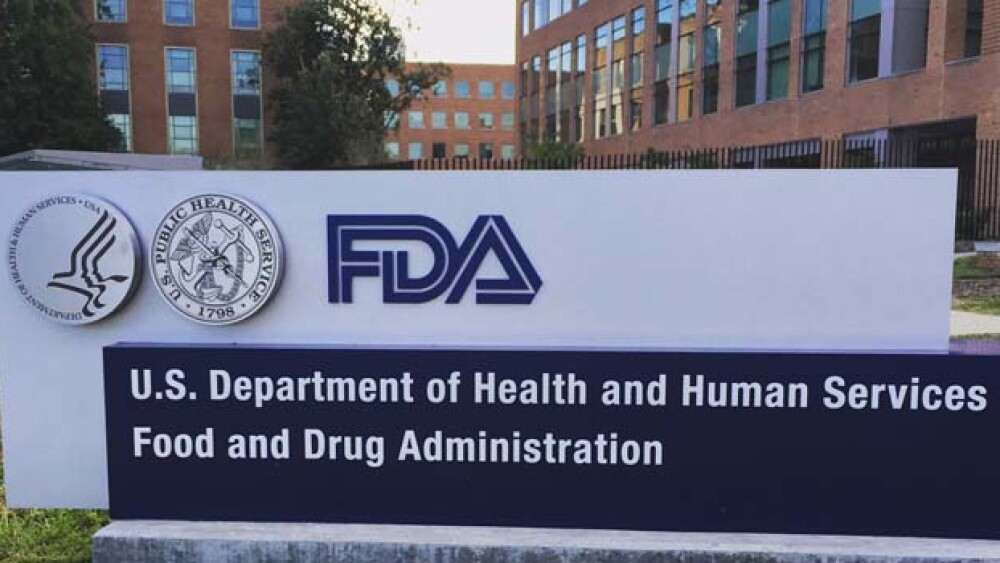Originally approved in 2013, the new pen injector was reported to be easy to learn and easy to use in a simulated-use study including 86 women with infertility and 30 fertility nurses.
EMD Serono Receives FDA Approval for New GONAL-f RFF Redi-ject Pen |
| [13-November-2017] |
| ROCKLAND, Mass., Nov. 13, 2017 /PRNewswire/ -- EMD Serono, the biopharmaceutical business of Merck KGaA, Darmstadt, Germany, in the U.S. and Canada, received approval for a redesigned version of GONAL-f® RFF* Redi-ject® (follitropin alfa injection) pen injector from the U.S. Food and Drug Administration (FDA). Originally approved in 2013, the new pen injector was reported to be easy to learn and easy to use in a simulated-use study including 86 women with infertility and 30 fertility nurses.1 "As a committed fertility treatment partner, we aspire to develop user-friendly treatment options for patients," said Richard R. Smith, Senior Vice President and Head of US Fertility and Endocrinology at EMD Serono. "The best drivers for innovation come from the insights of people using our products, which is why feedback from patients and healthcare professionals was critical in redesigning the pen injector features." The redesigned GONAL-f® RFF Redi-ject® pen is the second version since its initial approval, underscoring EMD Serono's commitment to enhancing its product offering. Building on a strong foundation as the only fertility drug pen injector that does not require mixing or loading, the new pen offers a larger display window for dose readability. GONAL-f® RFF Redi-ject® (follitropin alfa injection) was first approved for use by the FDA on October 17, 2013 and is available in three sizes: 300 IU, 450 IU and 900 IU. GONAL-f® (follitropin alfa for injection) vials were first approved for use by the FDA in September 1997. Supporting the one in eight couples in the U.S. suffering from infertility is a key focus for EMD Serono,2 and the redesigned version of the GONAL-f® RFF Redi-ject® pen is one example of EMD Serono's ongoing dedication to the fertility community. For more information about the new GONAL-f® RFF Redi-ject® pen injector, please call Fertility Lifelines at 1-866-538-7879. References
About GONAL-f® RFF Redi-ject® (follitropin alfa injection) GONAL-f® RFF Redi-ject® (follitropin alfa injection) is indicated for induction of ovulation and pregnancy in oligo-anovulatory women in whom the cause of infertility is functional and not due to primary ovarian failure and development of multiple follicles in ovulatory women as part of an Assisted Reproductive Technology (ART) cycle. Prior to treatment, complete an evaluation of female and male partners to determine infertility diagnosis. Primary ovarian failure should be excluded. GONAL-f® RFF Redi-ject® is contraindicated in women who exhibit: Hypersensitivity to rhFSH preparations or excipients, high levels of FSH indicating primary gonadal failure, pregnancy (Pregnancy Category X), uncontrolled non-gonadal endocrinopathies (thyroid, adrenal, pituitary disorders), sex hormone dependent tumors of the reproductive tract and accessory organs, tumors of pituitary gland or hypothalamus, abnormal uterine bleeding, ovarian cyst or enlargement of undetermined origin, not due to polycystic ovary syndrome. GONAL-f® RFF Redi-ject® is a potent gonadotropin for use by physicians specializing in fertility treatment or reproductive health and only when appropriate monitoring facilities are available. The lowest effective dose should be used given risk of abnormal ovarian enlargement and Ovarian Hyperstimulation Syndrome (OHSS). Thromboembolic events both in association with, and separate from OHSS have been reported in women treated with gonadotropins and can be serious. Women with generally recognized risk factors for thrombosis, such as personal or family history, severe obesity, or thrombophilia, may have an increased risk of venous or arterial thromboembolic events, during or following treatment with gonadotropins. Ovarian torsion has been reported after treatment with gonadotropins. Serious pulmonary conditions (e.g., atelectasis, acute respiratory distress syndrome and exacerbation of asthma) have been reported in women treated with gonadotropins. Serious systemic hypersensitivity reactions, including anaphylaxis, have been reported. The couple should be advised of the potential risk of multi-fetal gestation and birth before beginning therapy. During clinical trials, multiple births occurred in 20% of live births in women receiving therapy for ovulation induction and 35.1 % of live births in women undergoing ART. The incidence of congenital malformations after some ART specifically in vitro fertilization (IVF) or intracytoplasmic sperm injection (ICSI) may be slightly higher than after spontaneous conception. The incidence of spontaneous abortion and ectopic pregnancy may be increased. Both benign and malignant ovarian neoplasms have been infrequently reported; causality has not been established. Both ultrasound and serum estradiol measurement should be used to monitor follicular growth and maturation, timing of the ovulatory trigger, detecting ovarian enlargement and minimizing the risk of the OHSS and multiple gestation. The most common adverse reactions (≥5%) in OI include: headache, abdominal pain, and ovarian hyperstimulation. The most common adverse reactions (≥5%) in ART include: abdominal pain, nausea, abdominal enlargement, headache, and injection site reactions (pain, bruising). In addition to advising patients about the proper use of treatment, the duration and necessity of monitoring, handling of missed doses, OHSS, and multi-fetal gestation and birth, patients should be advised to review the Patient Information Leaflet which contains risk information, follow the Instructions for Use for the GONAL-f® RFF Redi-ject®, not share the device or reuse needles, and to ask their HCP about questions. *RFF Revised Formulation Female Full prescribing information for GONAL-f® RFF Redi-ject® can be found at: http://www.emdserono.com/ms.country.us/en/images/Gonal-f_RFF_Redi-ject_PI_tcm115_140008.pdf?Version About EMD Serono, Inc. EMD Serono is the biopharmaceutical business of Merck KGaA, Darmstadt, Germany, in the U.S. and Canada - a leading science and technology company - focused exclusively on specialty care. For more than 40 years, the business has integrated cutting-edge science, innovative products and industry-leading patient support and access programs. EMD Serono has deep expertise in neurology, fertility and endocrinology, as well as a robust pipeline of potential therapies in oncology, immuno-oncology and immunology as R&D focus areas. Today, the business has approximately 1,300 employees around the country with commercial, clinical and research operations based in the company's home state of Massachusetts. www.emdserono.com View original content with multimedia:http://www.prnewswire.com/news-releases/emd-serono-receives-fda-approval-for-new-gonal-f-rff-redi-ject-pen-300553801.html SOURCE EMD Serono |





